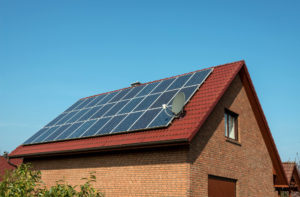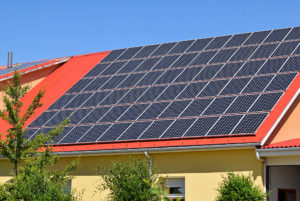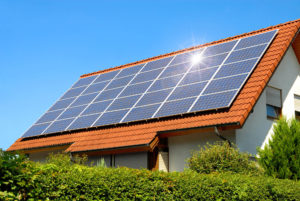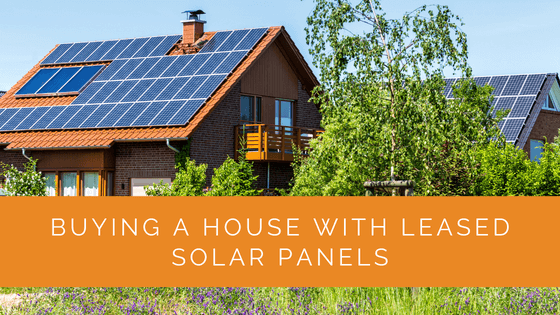Buying a home with leased solar panels is a new and complex decision that requires careful consideration. This guide offers essential insights to help you make an informed decision that aligns with your homeownership goals. We cover everything from the impact of sunlight exposure on your roof to the pros and cons of leasing versus buying solar panels. We also explore how solar panels affect property value, the complexities of solar financing, and the potential for long-term savings.
This article is a must-read for anyone considering a solar-equipped home. We break down complex concepts into clear and actionable information, ensuring you have the knowledge to make an informed decision.
Contents
- 1 Key Takeaways
- 2 Things to Know Before Leasing or Buying Solar Panels
- 2.1 How Much Sunlight Will the Roof Get?
- 2.2 Will You Rent or Buy Solar Panels?
- 2.3 How About the Resale Value?
- 2.4 How Much Upkeep Can You Expect?
- 2.5 Is It Possible to Get a Loan for A Property with Solar Panels?
- 2.6 What Happens When The Roof Needs Repair?
- 2.7 What Is the Difference Between Solar Financing and Solar Loans?
- 2.8 Will Solar Panels Truly Save You Money?
- 3 Advantages of Purchasing a Home with Solar Panels
- 4 How to Exit a Solar Lease Safely?
- 5 Case Study: Navigating the Purchase of a Home with Leased Solar Panels
- 6 Expert Insights From Our Solar Panel Installers About Buying a House with Leased Solar Panels
- 7 Experience Solar Excellence with Us!
- 8 Bottom Line
Key Takeaways
- Solar panel adoption in the US has surged due to declining setup costs and the recognition of solar energy’s importance, providing continuous renewable energy.
- Before buying a home with leased solar panels, consider factors such as sunlight availability, ownership (lease or purchase), impact on resale value, maintenance requirements, and potential mortgage complications.
- Purchasing a home with solar panels can increase property value, reduce power bills, offer tax benefits, and improve grid flexibility. However, exiting a solar lease can be challenging, requiring careful consideration of contract terms and possible buyout options.
Things to Know Before Leasing or Buying Solar Panels
Is purchasing a home with leased solar panels the best option for you? That relies on a few crucial things:
How Much Sunlight Will the Roof Get?
Solar panels require a lot of sunshine to work correctly. Examine your property and the yards of your neighbors for trees. As the panels were installed, have the trees expanded and begun throwing too much shade? If so, some tree cutting or transplanting (along with neighborly bargaining) may be required.
Although solar panels play a pivotal role on south-facing rooftops, west-facing and east-facing rooftops can still collect a lot of electricity, provided they catch enough sunshine during the day.
Will You Rent or Buy Solar Panels?
If you’re considering purchasing a home with solar panels, find out if they’re on Lease or owned. As per Consumer Reports, owning your home’s solar panels is the best economic option because solar panel leaseholders save less than people who buy them outright.
Moreover, the average lease length of solar panels is 20 years. You will become the lessee if you purchase a property with years remaining on the Lease.

How About the Resale Value?
Solar panels, like new kitchens or redone bathrooms, boost the value of a property. Solar-paneled homes retail for 1.4% more than similar houses without panels.
The PV, i.e., photovoltaic value, determines the energy produced by Solar panels and follows the Uniform Standards of Professional Appraisal Practice. The Photovoltaic value is a method that house sellers and purchasers can use to obtain the most precise assessment of a property’s solar energy system production.
How Much Upkeep Can You Expect?
The benefit of solar panels is that they perform their job with no effort on your side. That being stated, you’ll want to take better care of your assets. Solar panels can last as long as 30-50 years if properly maintained.
To maintain the panels in good condition, you’ll have to clean them. The process includes clearing debris and dirt twice yearly after thunderstorms that may leave them in mud. Cleaning will guarantee that the panels receive sufficient sunlight to function correctly.
Is It Possible to Get a Loan for A Property with Solar Panels?
Purchasing a house with a solar panel system might impair your ability to obtain a mortgage. Whether you buy or lease the solar panels and how they were funded may impact your mortgage.
If the owner of your potential house owns the panels entirely, that’s perfect. Why? Because the panels will most likely not affect the property’s price. However, if you purchase a property with leased panels, you should negotiate the lease terms and monthly expenses connected with the system.
What Happens When The Roof Needs Repair?
Rooftops with solar panels must be in excellent condition, although they may need to be replaced at some point.
If a solar-paneled roof has to be changed, the mounting hardware and the panels must be removed and reassembled. Solar panel installers typically perform this job, but a roofing firm can help. In addition to the roof costs, re-installation might cost anything between $1,500 to $6,000.
What Is the Difference Between Solar Financing and Solar Loans?
As the buyer, you want to know if the house’s seller owns the panels and pays installments through a mortgage or finance.
If a solar loan is used for the panels, the seller will hold the mortgage even after the house is sold. That implies the buyer is no longer obligated to pay loan installments.
If the panels were acquired using Property Assessed Clean Energy (PACE) funding, the financing stays tied to the estate because payments are paid through real estate taxes. Those payments will be shifted to the house buyer as a result.

Will Solar Panels Truly Save You Money?
That depends, yet again.
Owning the new house’s solar panels will save dollars on energy expenditures. The sum you save will be determined by the magnitude of solar energy generated, local electric rates, and the number of watts the utility company compensates you when you transfer it back to the power grid.
The National Utility Rate Database enables you to look up present energy rates in different parts of the state or country. It helps estimate how much money you may save on monthly utility bills if you buy a home with solar panels.
Advantages of Purchasing a Home with Solar Panels
Many homeowners acquire solar panels altogether or with the assistance of a loan. Others prefer to lease their equipment to save money on installation costs.
The primary distinction between these two types of solar purchases is ownership. Whether you buy solar panels, you have complete ownership of the system. However, if you lease the panels or sign a power purchase agreement (PPA), the solar equipment is owned by a third party.
Property Value Increases
Homes with solar panels are sold for 4.1% more than homes without panels. This implies that house sellers might earn an extra $9,274 on a property sale. Homes in some sections of the nation may sell for considerably more.
Reduced Power Bill
Solar panels typically cost $200-$250 per unit. This depends on the manufacturer and number of panels, but you’ll spend less on power costs over time. According to Consumer Affairs, shifting to solar can reduce energy expenditures by 75%. This implies that you might save several thousand dollars over time.
Tax Credits and Other Benefits
Solar may provide you with more than just lower electricity bills/costs. If you are eligible, it can also provide you with tax advantages, federal tax credits, and rebates.
Improved Grid Flexibility
“Off the grid” indicates that you are not reliant on utilities for power. You may, however, determine the amount of grid connectivity you need. You can connect partly if you do not wish to be entirely off utilities.

How to Exit a Solar Lease Safely?
Many households can now get loans or incentives to install solar panels. Unfortunately, this was not always the case. Existing solar leases still bind several solar panel owners.
So, how can you escape from an unfavorable solar lease? It might be challenging to do so unless you pursue legal action. Nevertheless, a few possibilities remain.
Cancel the Lease Before Installation
It is simpler to terminate the contract if the system has not yet been installed. Most businesses provide cancellation periods before the installation begins. You won’t need to be concerned about fines if you respond quickly.
Typically, the window is roughly 30 days, just after the signing of the contract. Some businesses may even give you the terms of terminating the contract early. As a result, properly review the agreement before signing so you may cancel beforehand if required.
Cancel the Lease Following Installation
Transferring the Lease to the new owner should be simple if you sell your house. However, if he is not interested, then you can try and buy the remaining worth. Check the Lease to see if this option is included.
A few leasing firms may be willing to release you from the contract by acquiring the equipment for an acceptable market value. Is this something you can live with? It is worth noting that the price decreases as the lease term extends.
Background
At Solar Panels Network USA, we strive to provide comprehensive solar solutions and guidance to homeowners. This case study outlines our experience with a client who was purchasing a home equipped with leased solar panels, highlighting the complexities and benefits involved in such a transaction.
Project Overview
Our client was considering buying a home that had leased solar panels. The primary objective was to evaluate the financial and practical implications of taking over the solar lease, ensuring the investment would be beneficial in the long run.
Implementation
Site Assessment and Preparation
We began by conducting a detailed site assessment to determine the efficiency and condition of the existing solar panels. The assessment included evaluating the roof’s sunlight exposure, the age and maintenance history of the panels, and any potential shading issues from nearby trees or structures.
Lease Evaluation
Understanding the lease terms was crucial. We thoroughly reviewed the lease agreement to identify the duration, monthly payments, potential buyout options, and any clauses related to maintenance and repairs. This step ensured that our client was fully informed about the financial commitments and benefits of the lease.
Financial Analysis
We conducted a cost-benefit analysis comparing the lease payments with potential energy savings. This included:
- Calculating the average monthly energy production and savings.
- Estimating long-term savings considering utility rate increases.
- Evaluating available incentives and rebates that could offset costs.
Maintenance and Upkeep
Our team advised the client on the maintenance requirements of the solar panels. While leased panels often come with maintenance services provided by the leasing company, understanding the responsibilities and potential additional costs was essential.
Negotiation and Transfer
We assisted our client in negotiating with the seller and the leasing company to ensure a smooth transfer of the lease. This included:
- Ensuring that the lease terms remained favorable.
- Confirming that the leasing company would continue to honor the maintenance and service agreement.
- Verifying that the transfer process would not incur additional costs.
Results
The client successfully purchased the home with a clear understanding of the solar lease terms and potential benefits. The high sunlight exposure in the area ensured optimal panel performance, leading to significant energy savings. The client reported a 25% reduction in their monthly energy bills, which would result in substantial long-term savings.
The lease agreement included comprehensive maintenance services, ensuring the panels remained in optimal condition without additional costs. The client also benefited from federal and state incentives, further reducing the overall financial burden.
Summary
This case study demonstrates the importance of thorough due diligence when purchasing a home with leased solar panels. By understanding the lease terms, evaluating financial implications, and ensuring proper maintenance, our client made an informed decision that provided significant long-term benefits. At Solar Panels Network USA, we continue to support homeowners in navigating the complexities of solar energy investments, ensuring they make informed and beneficial decisions.
Expert Insights From Our Solar Panel Installers About Buying a House with Leased Solar Panels
Understanding the lease terms and potential savings is crucial when buying a home with leased solar panels. It’s essential to evaluate how much sunlight the panels receive and whether they align with your energy goals.
Senior Solar Panel Installer
Leased solar panels can be beneficial, but they also come with responsibilities. Ensure you know the maintenance requirements and any potential costs associated with roof repairs or panel relocation.
Lead Solar Engineer
Buying a home with leased solar panels often means taking over the lease. It’s important to understand the financial implications and ensure the lease terms are favorable.
Chief Installation Officer
Experience Solar Excellence with Us!
Trust in Solar Panels Network USA, where our seasoned experts deliver top-quality solar solutions for homes and businesses nationwide. With a legacy of countless successful installations and a commitment to sustainable energy, we’re your reliable partner in the solar journey. Ready for a brighter, eco-friendly future? Call us now at (855) 427-0058 and harness the sun’s power!
Bottom Line
Introducing solar panels to the list of things to look for when choosing a home raises some interesting dilemmas. Considering the typical energy savings and how solar panels influence the cost would be best. Are all of these criteria compatible with your budget?
One issue you do not need to be concerned about is maintenance. So mark that off your checklist because solar equipment is famous for its endurance and comes with a warranty on the panels. Renting solar equipment needs far less maintenance because the system is maintained by the firm that owns it.
About the Author
Solar Panels Network USA stands at the forefront of solar energy solutions, driven by a team of seasoned solar engineers and energy consultants. With over decades of experience in delivering high-quality solar installations and maintenance, we are committed to promoting sustainable energy through customer-centric, tailored solutions. Our articles reflect this commitment, crafted collaboratively by experts to provide accurate, up-to-date insights into solar technology, ensuring our readers are well-informed and empowered in their solar energy decisions.

